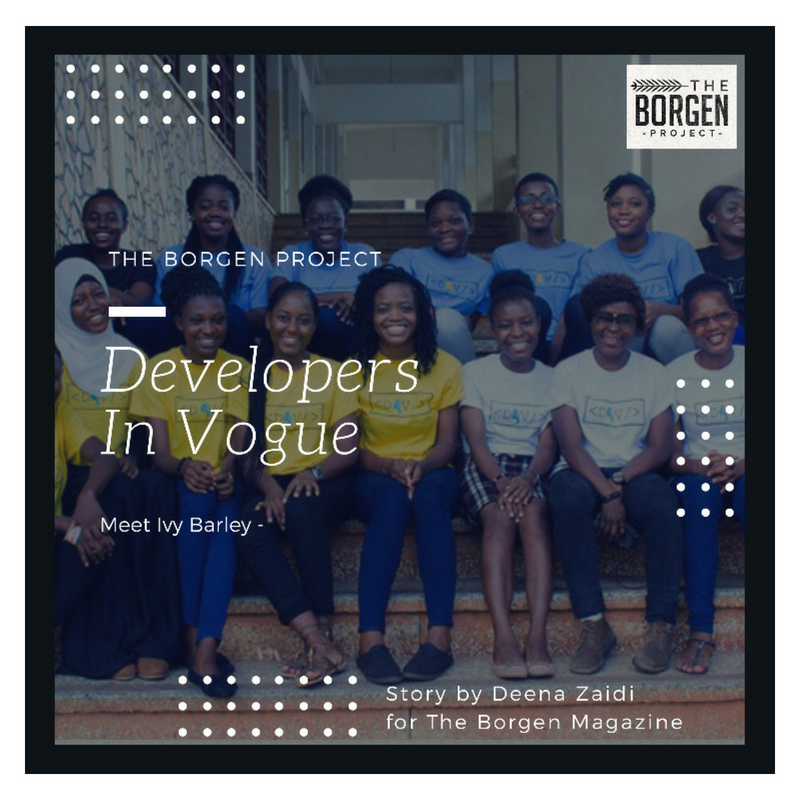Over the past few years, major tech companies like Facebook, Google, Microsoft and Alibaba have been providing solutions to bridge the skills gap in the region. But while there is a huge attempt to transform their lives, African women in tech struggle to enter the industry.
A few local firms are determined to bridge the skills gap for African women in tech. One such firm is Developers in Vogue, which originated in Ghana. Developers in Vogue is the brainchild of Ivy Barley, a graduate of Nkrumah University of Science and Technology, who launched Developers in Vogue with the aim to uplift African women in tech through education. Through Developers in Vogue, she is helping the underrepresented to lead in the areas of science, technology, engineering and mathematics. Barley spoke with The Borgen Project about her work.
The Borgen Project: Tell us a little about Developers in Vogue and what motivated you to start the initiative.
Ivy Barley: About a year ago, I was working at an all-girls pre-university where my role included assisting the girls with mathematics, statistics and physics. I also taught the girls programming. Before working in this school, I’d been hearing people say that women don’t like coding. However, I realized the contrary! The girls were very enthusiastic about coding; they also had so many great ideas! Though I had to leave this school, what never left me were the memories of the girls. It dawned on me to start a sustainable initiative that will create the ideal environment for females to code, connect and collaborate. That’s how Developers in Vogue was founded.
TBP: What kind of impact do you think Developers in Vogue will have on the future of tech, specifically women?
IB: Our vision is to shape a world where more African women will be daring enough to lead in science, technology, engineering and mathematics. Our focus is to train females in the latest technologies and connect them to real-time projects and jobs to enable them to apply their skills and earn an income. We want the women in our community to be at the forefront of technology on the continent and beyond.
TBP: Do you have a role model you look up to for inspiration?
IB: During my undergraduate study, I almost gave up on my education. However, under the mentorship of two amazing female scientists in Ghana, Professor Ibok Oduro and Professor Atinuke Adebanji put me back on track. I even went ahead to complete a master’s degree in mathematical statistics. In business, Strive Masiyiwa is my role model. I get so much inspiration from his life, especially how he has founded successful businesses across the continent.
TBP: What are the practical challenges that African women in tech are facing?
IB: Generally, society has the perception that tech fields are not meant for women. Though a number of women have interest in tech, they tend to get discouraged along the line and so drop out. Some tech workplaces don’t create the ideal environment for women to thrive. However, I believe that tech is gender neutral and anyone can excel at it. Another challenge which isn’t just limited to females is the high cost of internet in many parts of Africa. This creates some limitations as people are not able to use the internet and explore its potential to the fullest. I believe that by investing in infrastructure, internet access can be more affordable and available.
TBP: What are the future expansion plans for Developers in Africa and where do you see your firm in five years?
IB: In the next five years, we aim at having at least 5,000 female developers in our community. These women will be exposed to many opportunities in the tech industry. Though our current operations are in Ghana, we seek to expand our work to more African countries.
TBP: What are the three things you would tell to all the women in Africa who want to get in the field of tech?
IB: First of all, you have to believe in yourself: you’re capable of doing so much! You also need to stay updated with the latest trends in the industry. One thing about technology that it changes so fast; so if you don’t adapt to the changes, you’d be left behind. Finally, you must work very hard to stay relevant.
TBP: How can global tech companies like Google help initiatives like Developers in Vogue?
IB: One key component of our work is mentorship, where the ladies of our program are matched with industry experts to provide guidance and support. We’d be glad to have developers in global tech companies volunteer a few hours per month to mentor our ladies. We are also currently fundraising and will appreciate networks with prospective investors.
Females make up more than 50 percent of the population of most African countries, and with tech on the rise, it is becoming even more crucial that African women are equipped with tools that help them transform the tech scene in Africa.
– Interviewed by Deena Zaidi
Orignally Published on The Borgen Magazine
